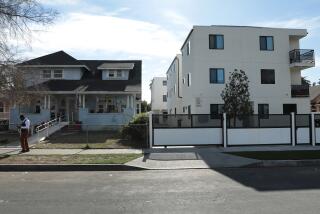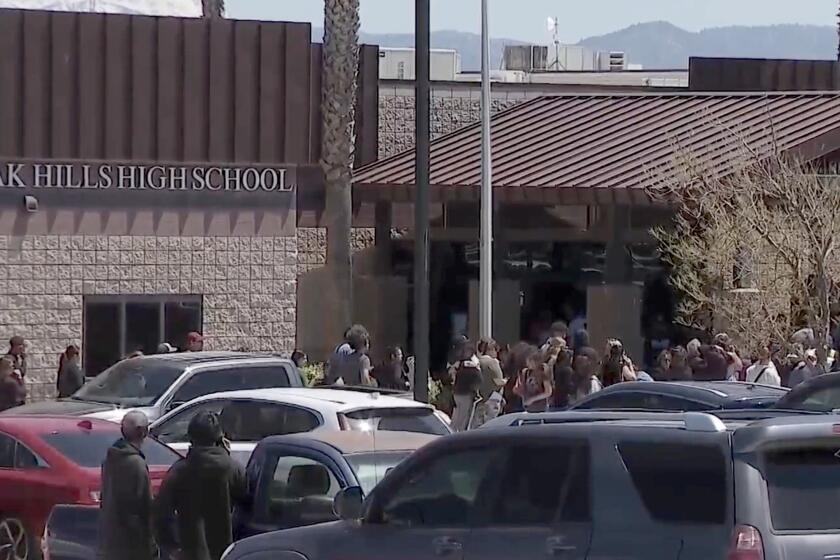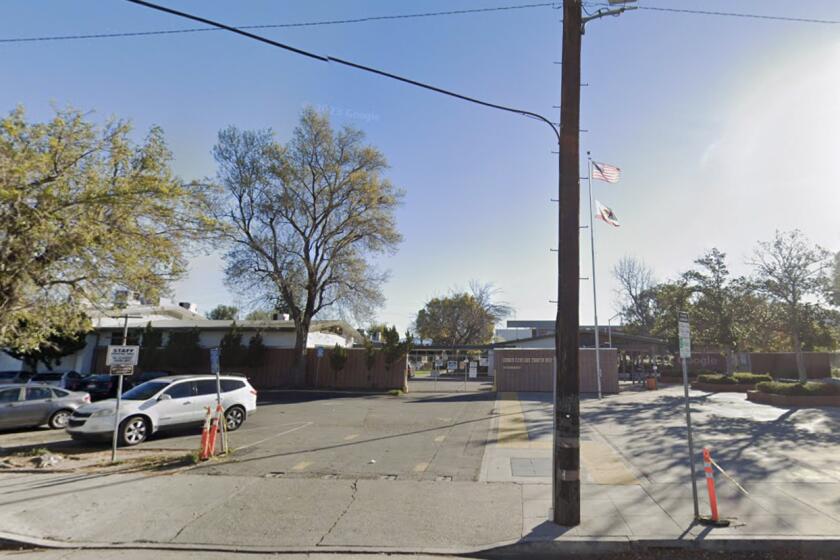Lack of leadership cited in community college rebuilding
An independent panel looking into the Los Angeles Community College District’s troubled rebuilding program found that the nearly $6-billion effort was hampered by a lack of leadership and accountability and that lax controls allowed large numbers of costly changes midway through projects.
The findings are contained in a report released Wednesday by a nine-member panel of business and educational leaders who were charged with reviewing the successes and failures of the 14-year construction program funded by taxpayer dollars.
The project became mired in controversy after The Times published a six-part series last year showing that tens of millions of dollars had been wasted in questionable spending, poor planning and faulty construction during an ambitious campaign to modernize the district’s nine aging campuses using bond money approved by voters in 2001, 2003 and 2008.
The district, for example, spent $39 million to design and start construction on four major buildings at West Los Angeles College, only to cancel the projects for lack of sufficient funds to finish them, The Times found.
The panel found that several of the projects had experienced significant problems in cost and time overruns and squandered funds due to many design changes and litigation. It found numerous instances of management breakdowns.
But the panel also determined that the building program generally had achieved “a good level of success” in the number of projects that had been completed. For example, of 620 major projects, 394, or 64%, had been completed, representing a total of $3 billion.
Although the program is generally delivering on its promises, a more centralized structure and tightened management of the design, construction and technology “would greatly increase its efficiency and its ability to deliver the program’s projects on time and under budget,” said John P. Dacey, the head of the panel who formerly was legal counsel for the Los Angeles Unified School District responsible for construction and design contracts.
In reviewing projects, the report found that more than a quarter of the work had been changed after contracts were awarded and design was completed. Because of that, the report said, the way the district handles and manages change orders was “fraught with waste and inefficiency and should be abandoned.”
The task force made a number of other recommendations, including a moratorium on new projects and board directives, tighter financial controls and a more centralized management structure.
“From a historical perspective, the panel also finds that the building program has exhibited a lack of clarity and consistency in leadership and in the decision-making processes systemwide,” the report said.
Energy projects, while “well founded,” were deemed to be too aggressive and need to be examined to ensure that they make financial sense. The $120-million solar power program, for example, cost more than it will recoup. “In effect, the district had paid too much ... and the paybacks will not be realized,” the report said.
Employees also must receive mandatory training to make certain that ethical standards are observed, the report said.
The panel’s findings are the latest in a series of local and state audits and investigations of the building program. The community college district also hired an inspector general to oversee its operations.
Some critics had questioned the independence of the review panel, whose members were appointed by Chancellor Daniel LaVista. But LaVista said Wednesday that he provided no input into the final report.
“I feel very good that we did not lead this horse to water,” LaVista said. “We knew what our place was in this process and provided documents, facilitated interviews and answered questions.”
The report will be formally presented to the Los Angeles Community College District Board of Trustees on Jan. 25.
Board President Miguel Santiago promised swift action.
“We are going to take the report very seriously and dive right into them with an ad hoc committee that will begin implementing the recommendations,” Santiago said.
The district has already begun work on some of those recommendations, but others will be addressed, he said.
More to Read
Start your day right
Sign up for Essential California for news, features and recommendations from the L.A. Times and beyond in your inbox six days a week.
You may occasionally receive promotional content from the Los Angeles Times.







